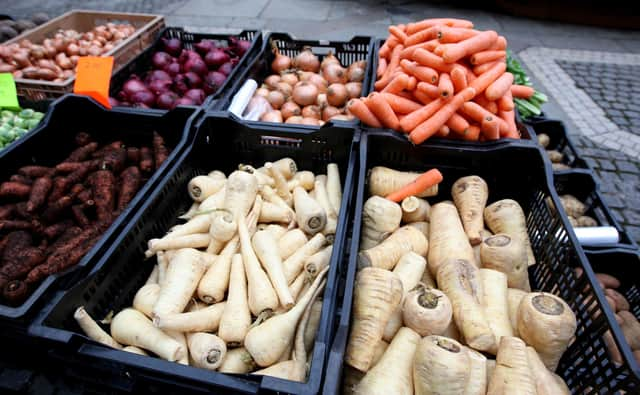Fewer hospital admissions for malnutrition in Coventry and Warwickshire University Hospitals Trust last year


Fewer hospital admissions for malnutrition were recorded in Coventry and Warwickshire University Hospitals Trust last year, new figures show – despite a national increase.
It comes as the Food Foundation charity said the rising number of hospital admissions for malnutrition across England "ring alarm bells" about the consequences of escalating food insecurity.
Advertisement
Hide AdAdvertisement
Hide AdNHS England figures show there were about 65 hospital admissions at University Hospitals Coventry and Warwickshire NHS Trust with a secondary or primary diagnosis of malnutrition in the year to March 2023.
It was down from an estimated 100 hospital admissions recorded the year before. These figures are rounded to the nearest five.
Additionally, a malnutrition diagnosis does not necessarily equate to having a lack of food. The admissions include those for dietary issues, an inability to absorb nutrients or other diseases affecting the patient’s ability to feed normally.
Looking at the 127 trusts across England with sufficient data, the number of hospital episodes where a patient was diagnosed with malnutrition – primarily protein deficiencies – reached roughly 10,795 last year.
Advertisement
Hide AdAdvertisement
Hide AdIt was a slight increase from 10,660 in 2021-22 and the highest number since at least 2009-10, when some 3,490 hospital admissions were recorded.
Ana Maria Narvaez, Food Foundation senior policy and advocacy officer, said: "The latest NHS figures on malnutrition-related hospital admissions ring alarm bells about the dire health consequences of escalating food insecurity."
"The ongoing impact of the cost-of-living crisis, accentuated by high food prices, jeopardises families' ability to afford enough nutritious food," she added.
Data from the Food Foundation's food insecurity tracker estimates 17% of households in the UK – about nine million adults and nearly four million children – are food insecure, meaning they do not have reliable access to enough affordable, nutritious, healthy food.
Advertisement
Hide AdAdvertisement
Hide AdProfessor Kamila Hawthorne, chair of the Royal College of General Practitioners said the rising number of malnutrition cases is "unacceptable" in a developed nation like the UK.
She added: "As we’ve seen fresh, healthier foods spike in price and become unaffordable for a substantial proportion of our most vulnerable patients, we’ve seen an inevitable impact on their physical health."
She said the Government must consider how to promote cheap and nutritious alternatives to fast food, alongside sufficient funding and support for general practice.
A Government spokesperson said: "Our healthy food schemes are providing a nutritional safety net for more than three million children.
"In addition, our extensive cost of living support – worth on average £3,700 per household – is helping those on low incomes with the cost of essentials, including food and energy bills."